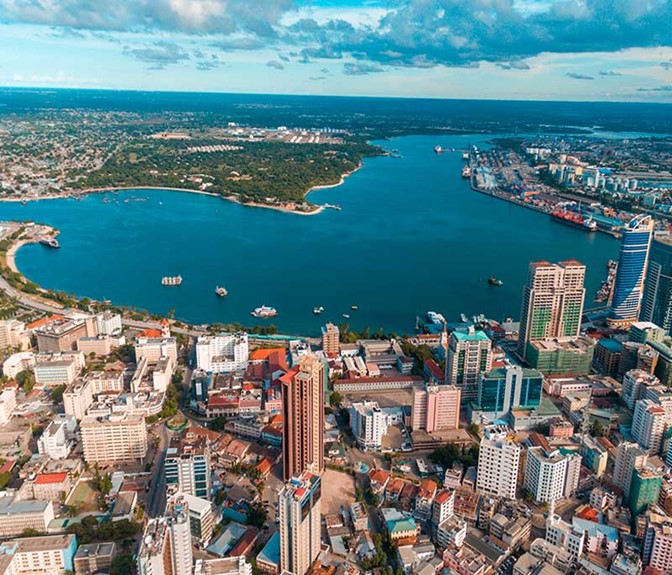Introduction
Imagine you are an aspiring entrepreneur who wants to start a business in Tanzania, one of the most dynamic and diverse countries in Africa. You have a great business idea, but you are not sure how to turn it into reality. What are the steps you need to follow to register your business, open a bank account, create a business plan, and market your products or services? How can you overcome the challenges and risks that you may face in the Tanzanian business environment? How can you leverage the opportunities and benefits that Tanzania offers to entrepreneurs?
If you are looking for answers to these questions, you have come to the right place. Read this article to learn the process of starting a business in Tanzania with little capital. You can also access practical tips, useful resources, and inspiring examples of successful businesses in Tanzania. Are you excited to learn more? Start reading now!
To start a business in Tanzania with a little capital:
1. Choose a Business Idea That Suits Your Skills, Interests, and Market Demand

To initiate a business in Tanzania with little funds, choose a business idea that aligns with your skills, interests, and market demand. Get inspiration from some of the profitable businesses in Tanzania that you can start with little capital, such as roadside fast food corners, office supply, rice farming, website designing, internet business, tutoring, snail rearing, poultry farming, etc. To do this:
- Think about what you enjoy doing, what you are good at, and what you have experience or knowledge in.
- Research and analyze the current and future market demand, competition, and potential profitability of your business idea.
- Seek inspiration from your own experiences. Reflect on your challenges, frustrations, and solutions.
- Engage in brainstorming sessions to generate business ideas.
- Assess factors such as market demand, competition, potential profitability, scalability, and resource requirements.
- Test your business idea with real customers and get feedback.
- Define what makes your business idea unique, valuable, and desirable to your target market. You can use online tools, such as Canva, to help you create a value proposition canvas that summarizes your business idea, customer segments, benefits, and differentiators.
2. Conduct Market Research
To establish a business in Tanzania with little capital, Conduct market research to validate your business idea, identify your target customers, analyze your competitors, and determine your unique selling proposition. You can use online tools, surveys, interviews, focus groups, and other methods to gather relevant data and insights.
3. Choose a Suitable Business Structure
To begin a business in Tanzania with scarce capital, choose a suitable business structure for your business, such as sole proprietorship, partnership, limited liability company, or public company. Each business structure has its advantages and disadvantages, as well as different legal and tax implications. You can consult a professional advisor or refer to a complete guide on the right business structure in Tanzania to help you make an informed decision.
4. Register Your Business Name
To commence a business in Tanzania with small capital, register your business name and obtain the necessary licenses and permits to operate your business legally in Tanzania. The process and requirements may vary depending on the type of business, the location, and the industry.
Generally, you need to apply for clearance of your proposed company name, obtain a notarized declaration of compliance, apply for company incorporation and obtain the certificate of incorporation, apply for taxpayer identification number (TIN), register for value-added tax (VAT), and obtain sector-specific licenses and permits.
Here are some general steps that you can follow to register a business in Tanzania, based on the information from the Business Registrations and Licensing Agency (BRELA) and the Tanzania Revenue Authority (TRA):
- Register a business name to BRELA before or after applying for a Taxpayer Identification Number (TIN). You can register your business name online through the Online Registration System (ORS) or offline by submitting the required documentation, such as a certificate of change, a lease agreement, or an introduction letter from a local authority.
- Apply for a TIN from TRA if you are an individual, a partnership, a trust, or a limited company. You can apply for a TIN online through the TRA website or offline by visiting nearby TRA offices and filling TIN application form.
- Obtain a certificate of incorporation from BRELA (Business Registrations and Licensing Agency) if you are starting a limited company. You need to draw a memorandum and articles of association and submit them along with the certificate of incorporation, lease agreement/title deed, and introduction letter from a local authority.
5. Open a Business Bank Account
To kickstart a business in Tanzania with minimal funds, open a business bank account and set up your accounting and bookkeeping system. You need to keep track of your income and expenses, as well as your tax obligations and filings. You can use online software, and apps, or hire a professional accountant to help you manage your finances.
To open a business bank account in Tanzania, you need to follow these steps:
- Choose a bank that suits your business needs and preferences. You can compare the services, fees, and benefits of different banks in Tanzania, such as Stanbic Bank, National Bank of Commerce, or Equity Bank.
- Prepare the required documents for your business account, such as:
- Certified certificate of incorporation
- Certified memorandum and articles of association
- Certified business license
- Certified TIN certificate
- Certified annual returns
- Copies of IDs for shareholders and signatories
- Three passport-size photographs
- Proof of income (Bank statement or audited financials)
- Fill out the application form for your business account online or offline, depending on the bank’s procedures. You may also need to provide some additional information, such as your business activity, turnover, and expected transactions.
- Submit your application form and documents to the bank and wait for approval. The bank may also conduct a background check or a verification visit to your business premises.
- Once your chosen bank approves your account, expect to receive your account number, debit card, checkbook, and online banking credentials. You can then start using your business account for your transactions.
6. Create a Business Plan That Outlines Your Goals
To launch a business in Tanzania with a small investment, create a business plan that outlines your goals, strategies, and action plans for your business. A business plan is a document that summarizes your business idea, market analysis, marketing plan, financial plan, operational plan, and risk assessment. It can help you secure funding, attract partners, and guide your business growth.
Here are some general steps that you can follow to create a business plan for a business in Tanzania:
- Write your executive summary.
- Put together your company description.
- Conduct your market analysis.
- Research your competition.
- Outline your products or services.
- Summarize your financial plan.
- Determine your marketing strategy.
- Monitor and evaluate your business performance.
7. Find a Suitable Location and Set Up Your Business Premises
To set up your business in Tanzania with limited financial resources, find a suitable location and set up your business premises. Depending on the nature of your business, you may need to rent or buy a space or operate from your home or a co-working space. You also need to acquire the necessary equipment, tools, and supplies for your business operations.
Some of the locations in Tanzania that are good to start a business are:
- Dar es Salaam: The largest and most populous city in Tanzania, Dar es Salaam is the economic and commercial hub of the country. It has a vibrant and diverse market, a well-developed infrastructure, and a strategic location on the Indian Ocean. It offers opportunities for businesses in sectors such as tourism, trade, manufacturing, and services.
- Arusha: The second-largest city in Tanzania, Arusha is the gateway to the northern safari circuit and the headquarters of the East African Community. It has a thriving tourism industry, a rich cultural heritage, and a favorable climate. It offers opportunities for businesses in sectors such as hospitality, agriculture, and handicrafts.
- Dodoma: The capital and administrative center of Tanzania, Dodoma is the seat of the government and the parliament. It has a growing population, a stable political environment, and a central location in the country. It offers opportunities for businesses in sectors such as construction, education, and health.
- Mwanza: The third-largest city in Tanzania, Mwanza is the regional capital of the Lake Zone and the main port on Lake Victoria. It has a large and dynamic market, a rich natural resource base, and a strategic position for regional trade. It offers opportunities for businesses in sectors such as fishing, mining, and transportation.
- Zanzibar: The semi-autonomous archipelago of Zanzibar is a popular tourist destination and a cultural melting pot. It has a unique history, a diverse population, and a tropical climate. It offers opportunities for businesses in sectors such as tourism, spice production, and creative industries.
8. Hire and Train Staff
To launch a business in Tanzania with a tight budget, hire and train your staff, if needed. You may need to recruit, interview, and hire employees or contractors to help you run your business. You also need to provide them with adequate training, supervision, and feedback. You also need to comply with the labor laws and regulations in Tanzania, such as minimum wage, working hours, social security, health insurance, etc.
9. Promote and Market Your Business
To embark on a business venture in Tanzania with modest capital, promote and market your business to attract and retain customers. You can use various methods and channels to reach your target audience, such as word-of-mouth, social media, online advertising, flyers, brochures, events, etc. You also need to create a brand identity and a unique value proposition for your business, as well as provide excellent customer service and satisfaction.
10. Monitor and Evaluate Your Business Performance
To get a business off the ground in Tanzania with small money, monitor and evaluate your business performance and make adjustments as needed. Measure and analyze your key performance indicators (KPIs), such as sales, revenue, profit, customer retention, customer feedback, etc. You also need to identify and address any challenges, risks, or opportunities that may arise in your business environment.
Recap
To start a business in Tanzania with a shoestring budget, select a business idea that aligns with your skills, interests, and market demand. Then, perform market research and determine an appropriate business structure for your venture. Register your business name and establish a business bank account. After this, develop a business plan outlining your objectives, secure a suitable location, and set up your business premises. Furthermore, recruit and train employees, and advertise and market your business. Finally, track and assess your business’s performance.

















